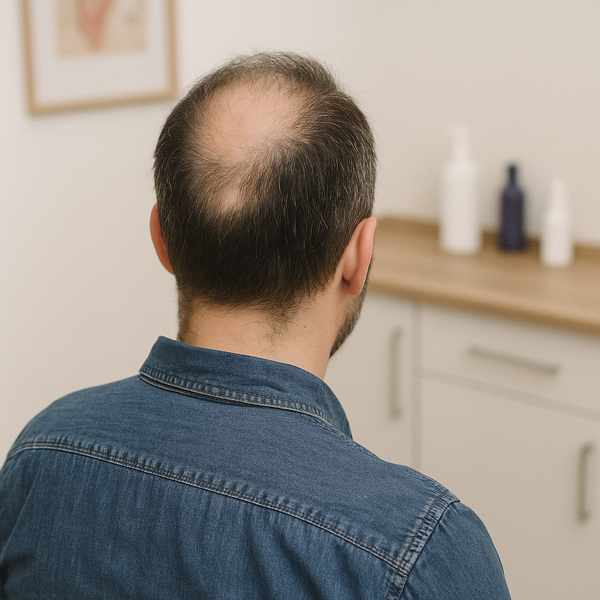Weight Loss and Hair Loss
Weight Loss and Hair Loss
Blog Article

Many people notice their hair thinning during or after a weight loss journey, which can be concerning.
Understanding why this happens and how to protect your hair can help you reach your goals without compromising your confidence.
What Causes Hair Loss After Losing Weight?
Hair loss during weight loss is usually a result of physical stress or nutritional deficiencies.
Common causes include:
- Nutrient deficiencies
- Extreme calorie restriction
- Hormonal imbalances
- Rapid weight loss
What Type of Hair Loss Is It?
Most hair loss related to weight loss is called telogen effluvium.
Key facts:
- Usually occurs 2–3 months after weight loss begins
- Hair falls out evenly across the scalp
- Hair usually grows back with time
What Your Hair Needs to Thrive
If you're trying to lose weight, be sure not to miss these nutrients:
- Protein
- Carries oxygen to hair follicles
- Vital for cell renewal and keratin production
- Zinc
- Linked to healthy follicles and hormonal balance
Skipping meals or using crash diets can easily lead to deficiencies that trigger hair loss.
Yes — With the Right Strategy
It’s possible to do both by following a balanced and mindful approach.
Tips include:
- Lose weight gradually
- Focus on whole, balanced meals
- Consider a multivitamin
- Manage stress and sleep
- Hair needs water, too
Next Steps After Hair Thinning Starts
If you notice excessive shedding:
- It’s likely temporary
- Get bloodwork done
- Focus on protein and iron intake
- Avoid tight hairstyles and harsh products
- Be patient
Should You Talk to a Doctor?
A doctor or dermatologist can help identify underlying hair loss from weight loss issues like:
- Thyroid dysfunction
- Autoimmune conditions
- Severe nutritional deficiencies
Conclusion
Weight loss and hair loss can be connected, but they don’t have to be permanent partners.
Prioritize nourishment, patience, and consistency, and your body will thank you — from head to toe. Report this page